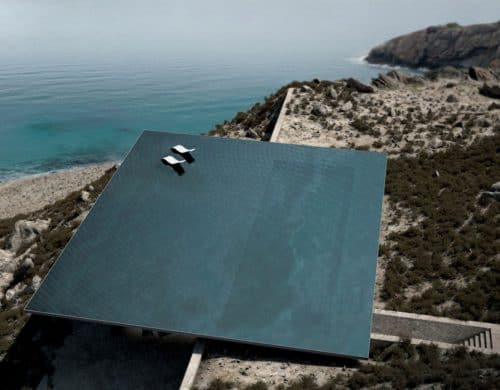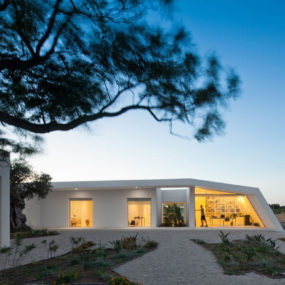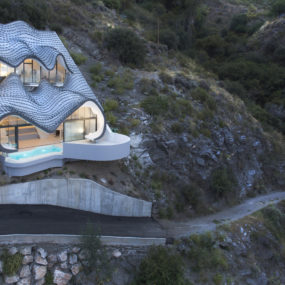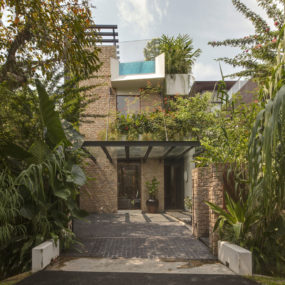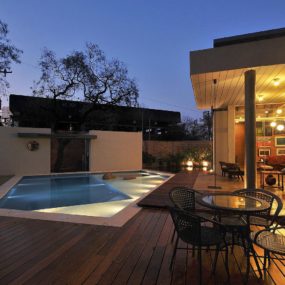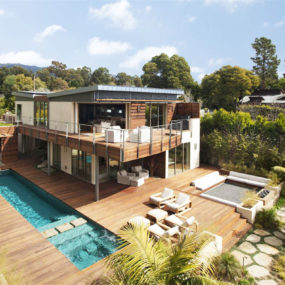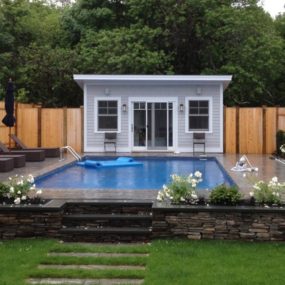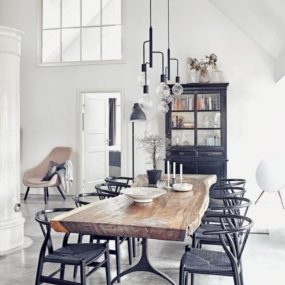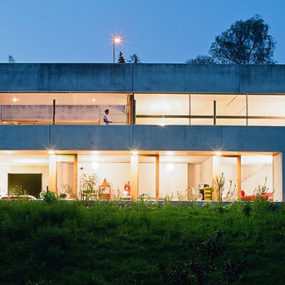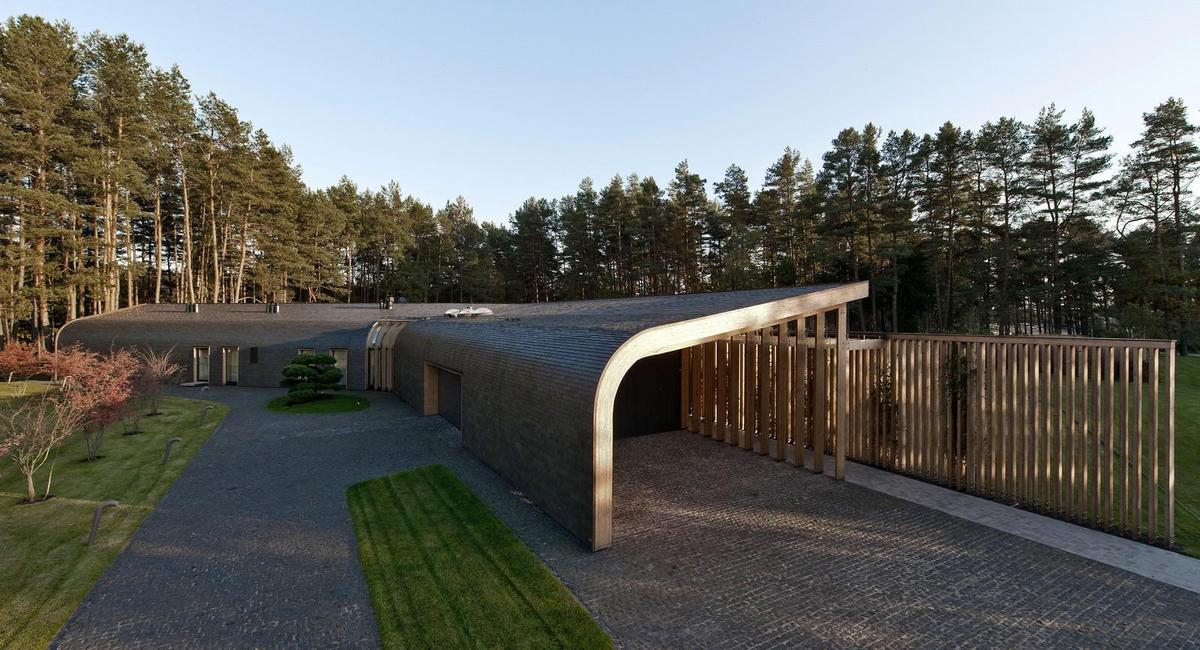
Villa G by Audrius Ambrasas Architects is a triangular one storey house with elongated ends whose roof curves down to create the back wall in one continuous form. This soft sloping, continuous roof was specifically designed to help the structure merge within its Pavilniai Regional Park (in Vilnius, Lithuania) setting and the unusual shape of the home was created to follow the topography of the land.
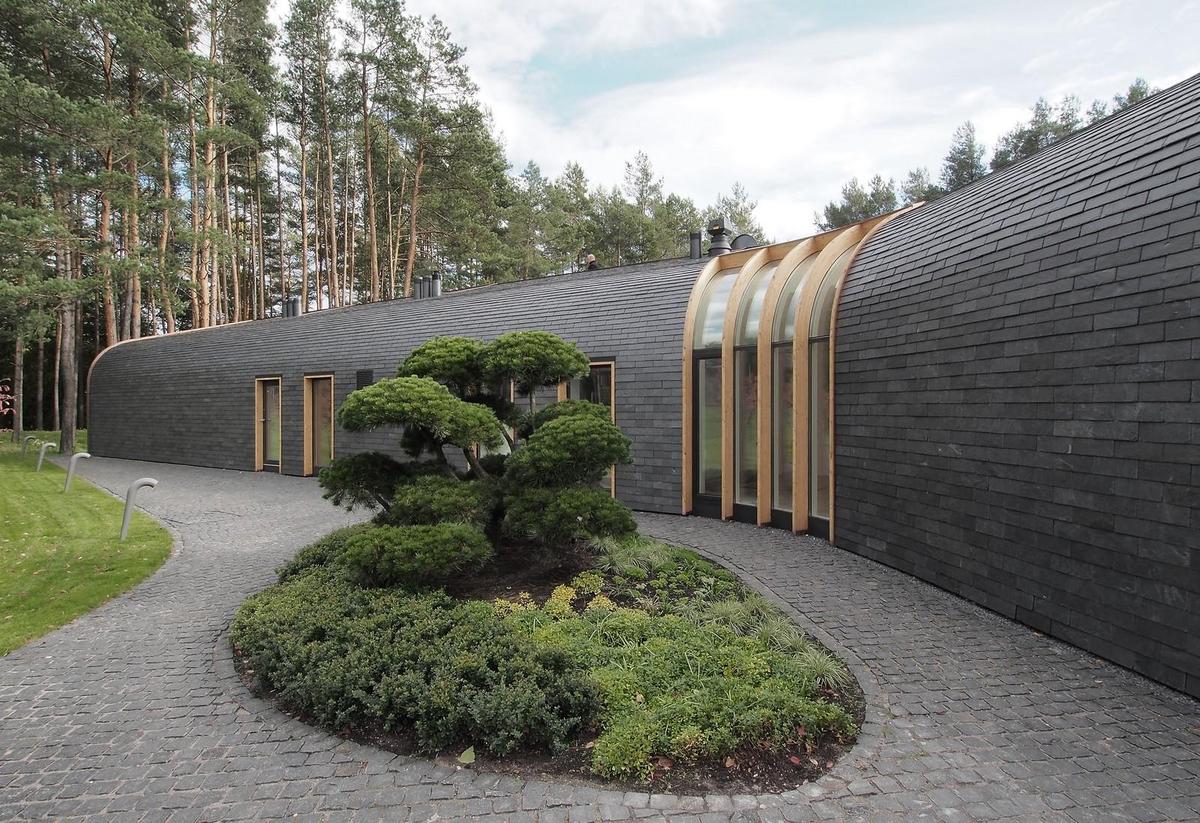
Aside from designing a curve where the roof morphs into the wall, the architects also implemented accordion like curves within its walls on all three sides of the triangular footprint.
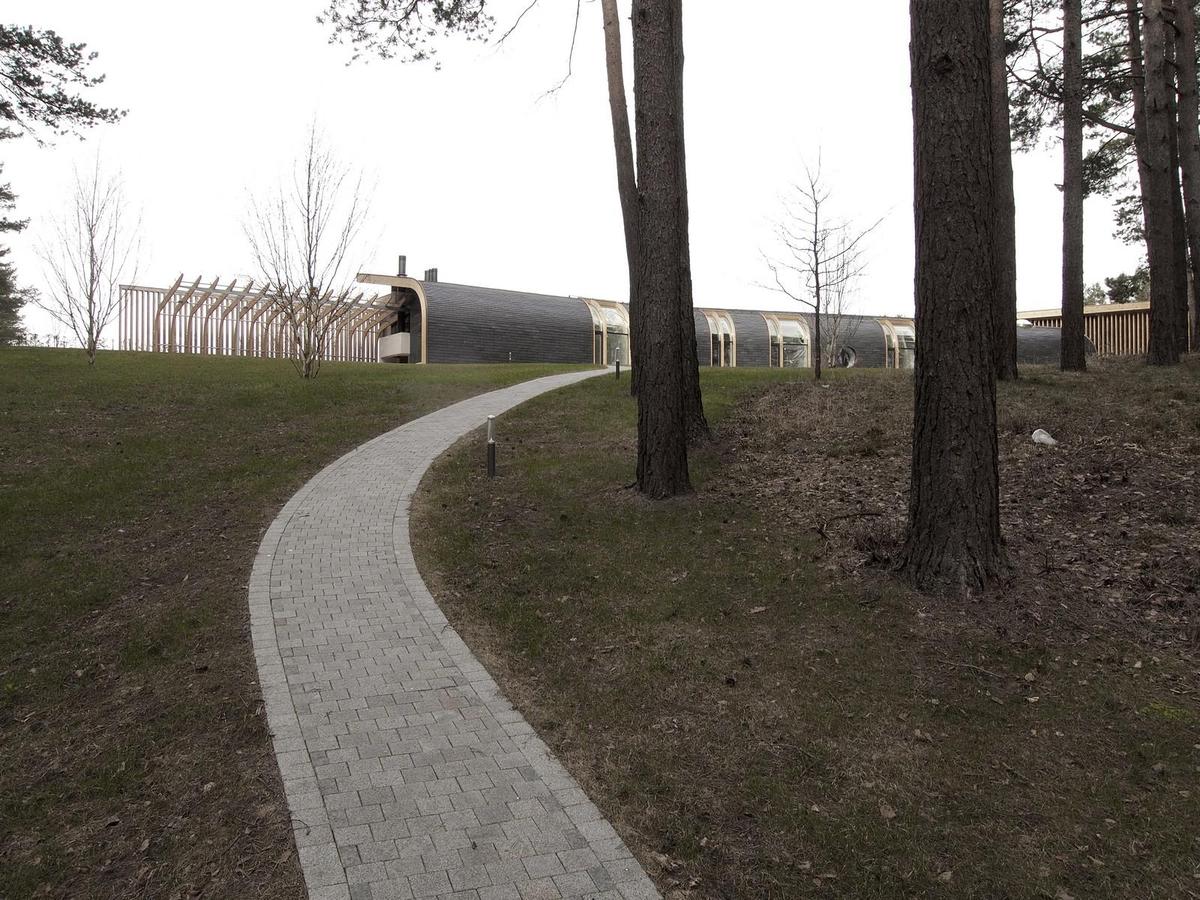
The accordion looking bends are created from laminated timbered and glass and these same laminated timbers create a Pergola that extends outward on one end, providing shade for the swimming pool terrace.
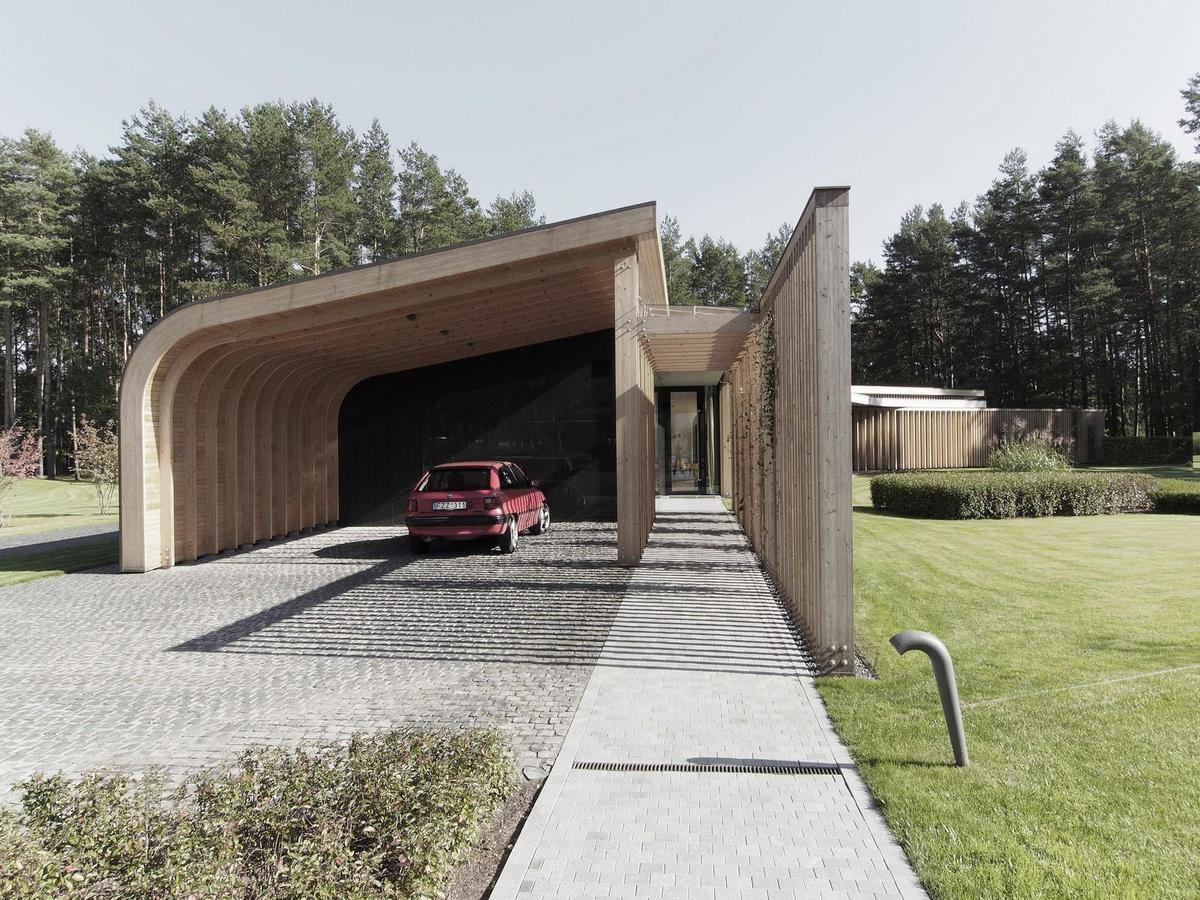
The Pergola repeats the shape of the car port that extends out from another end, nearest the street while a timbered privacy wall on the other side of the walkway leads to the main entrance.
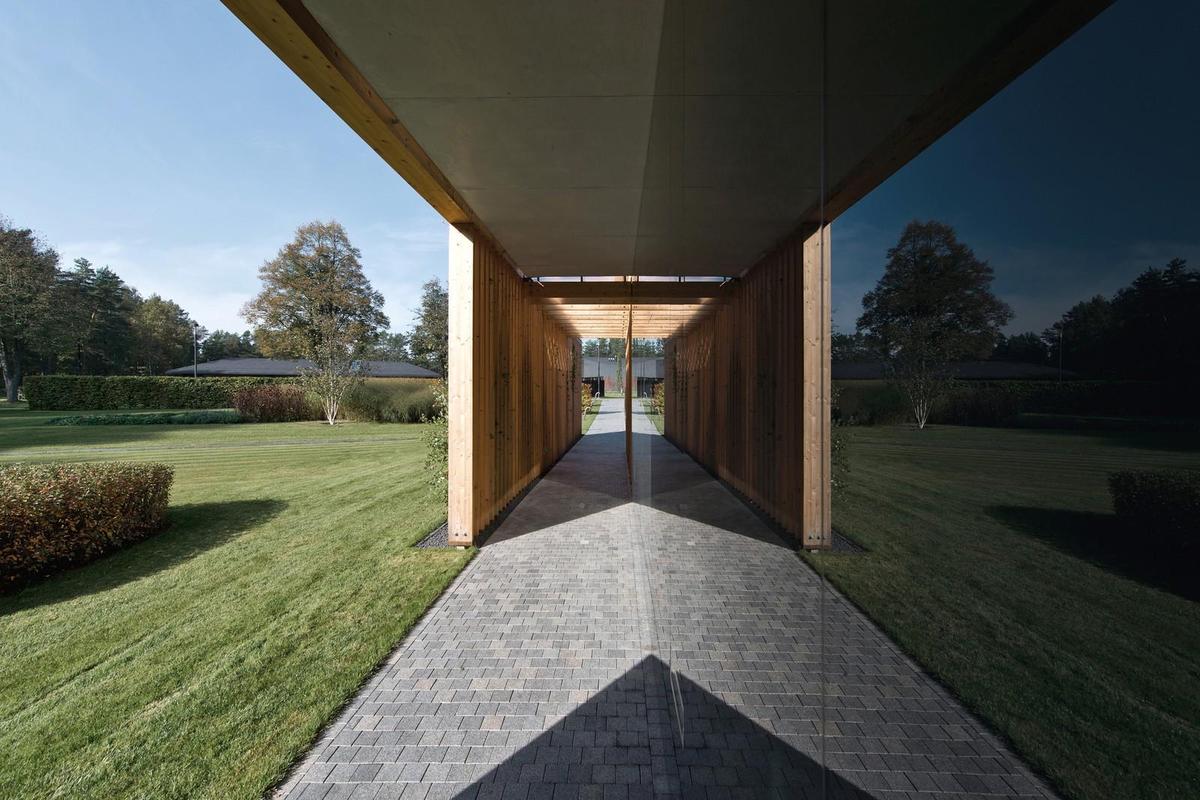
The Privacy screen and walkway extend past the main entrance and create an interesting reflection in the homes wall of windows.
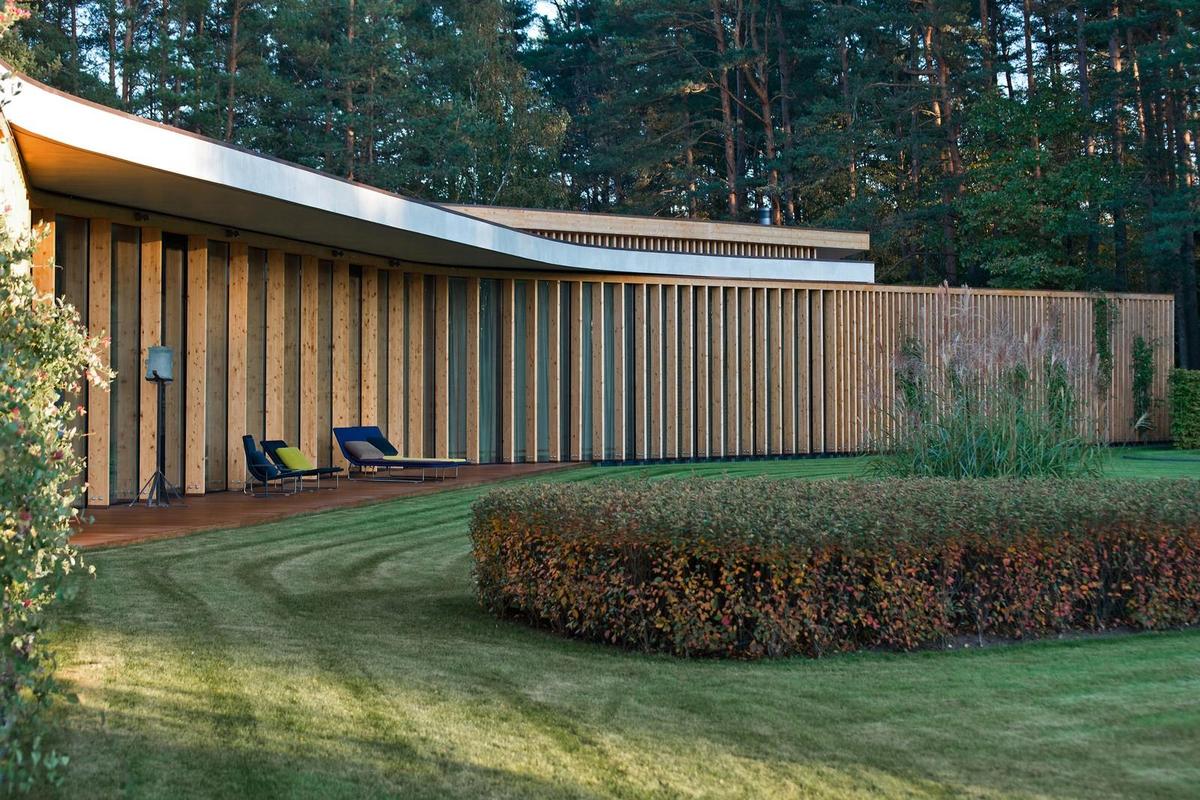
At the far end of the walkway the glazings have stopped and the facade instead features a section of vertical timbers, first placed close together and then gradually separating into a second privacy wall.
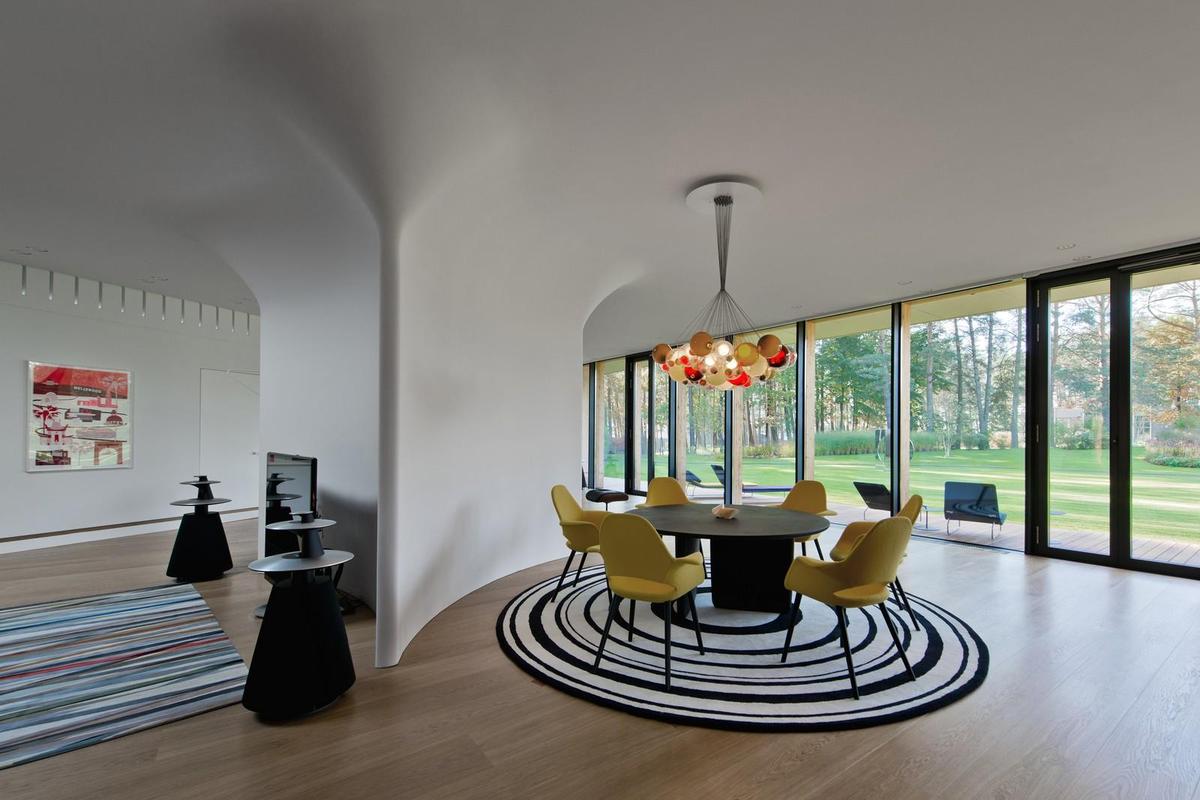
Inside the home is an open plan social zone that consists of the dining room, living room and office area all positioned around a curvaceous triangular support column.
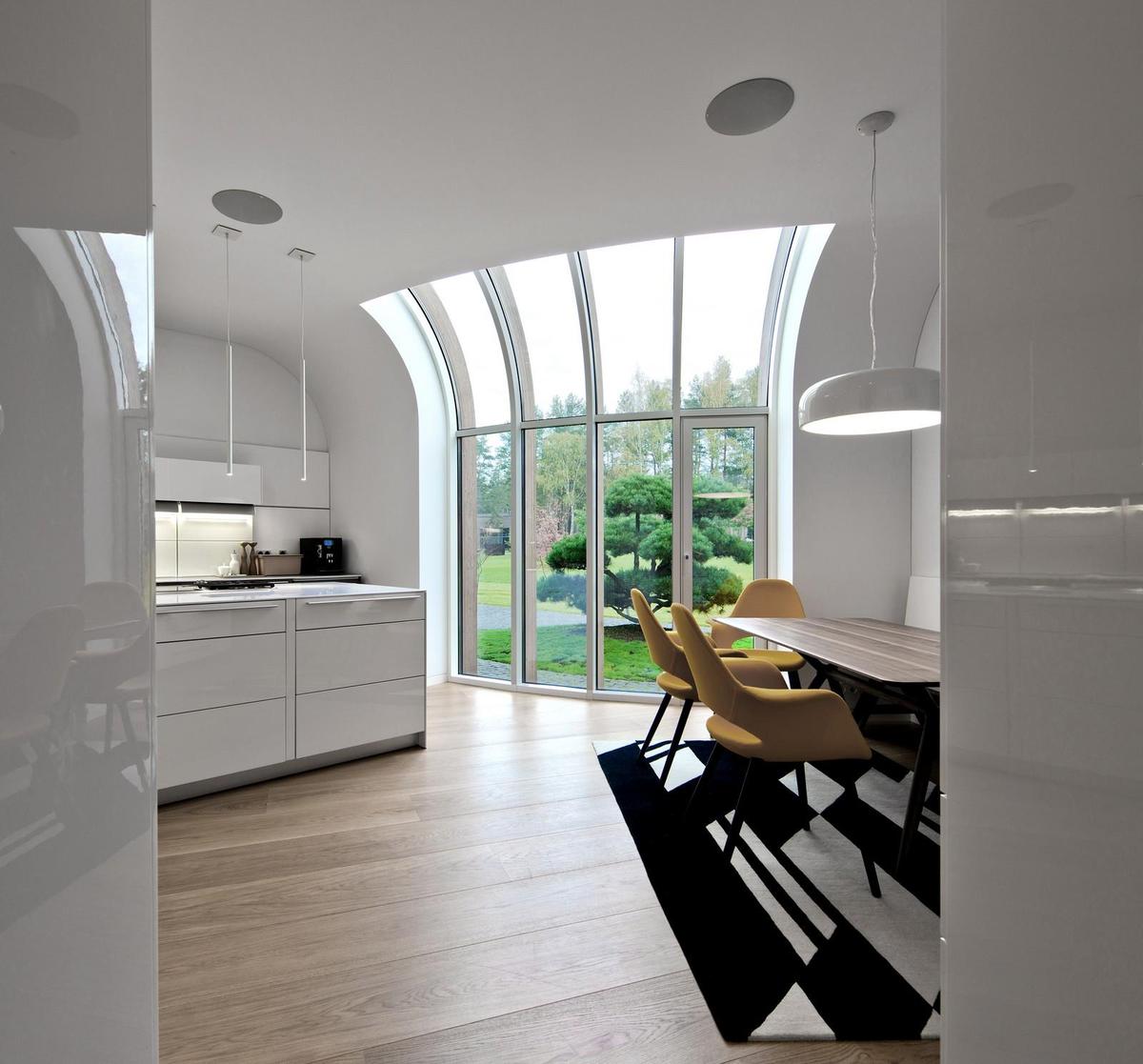
The kitchen room is off of the dining room and is located in the accordion curve overlooking the front garden.
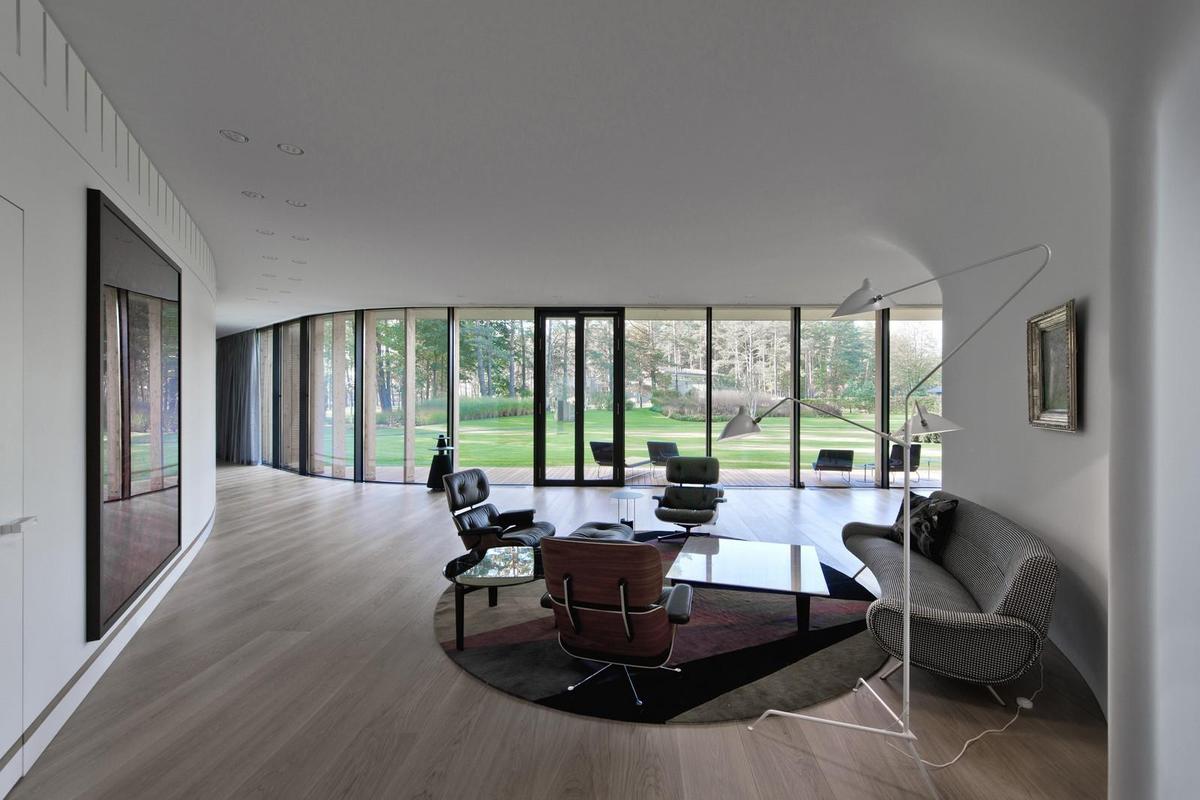
Directly across from the living room is a row of bedrooms and a bathroom and past them is a hallway that leads to the pool and terrace.
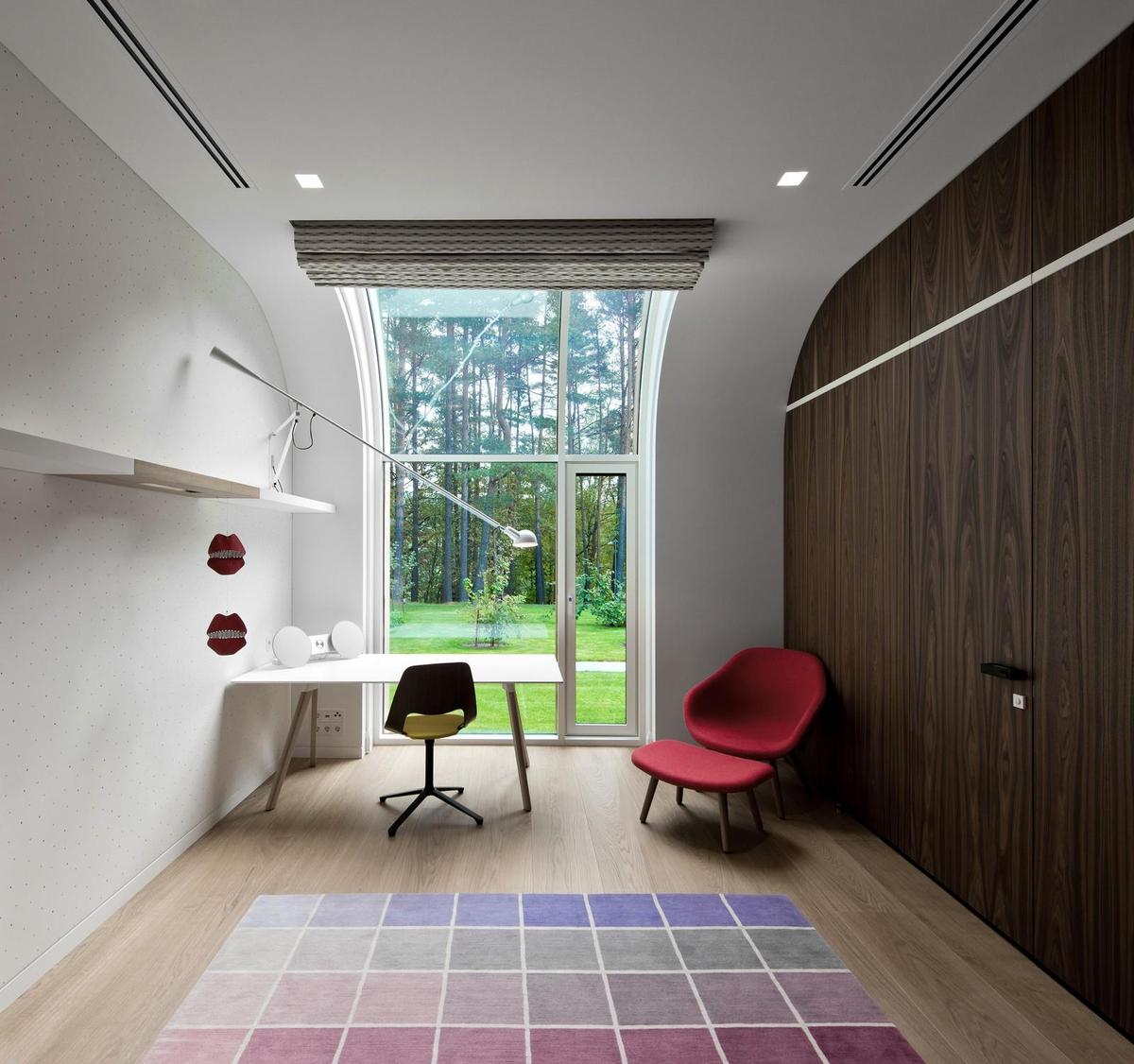
There are three children’s bedrooms, each with their own study area and a master suite complete with walk-in closet and ensuite.
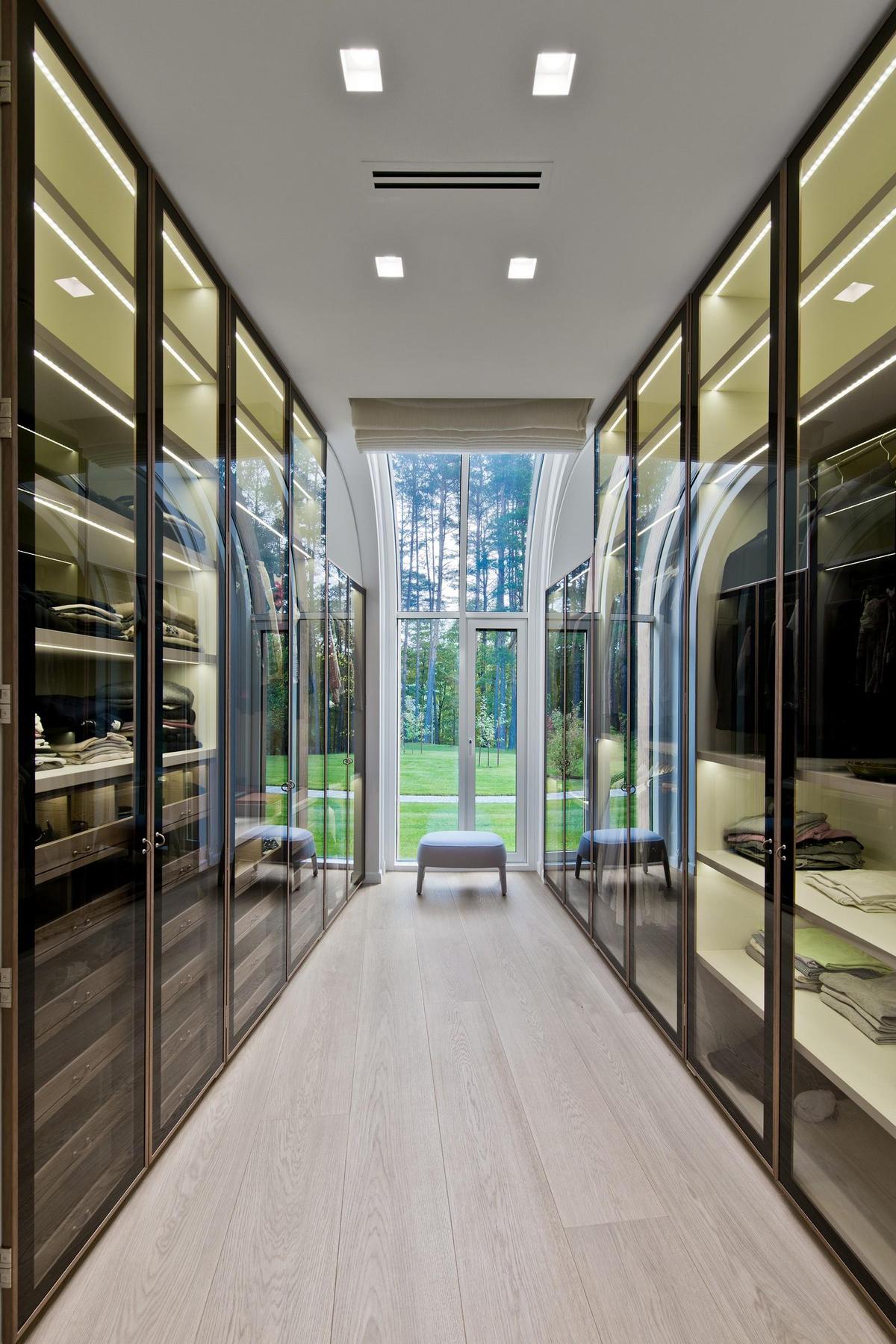
The closet in the master suite is pretty amazing.
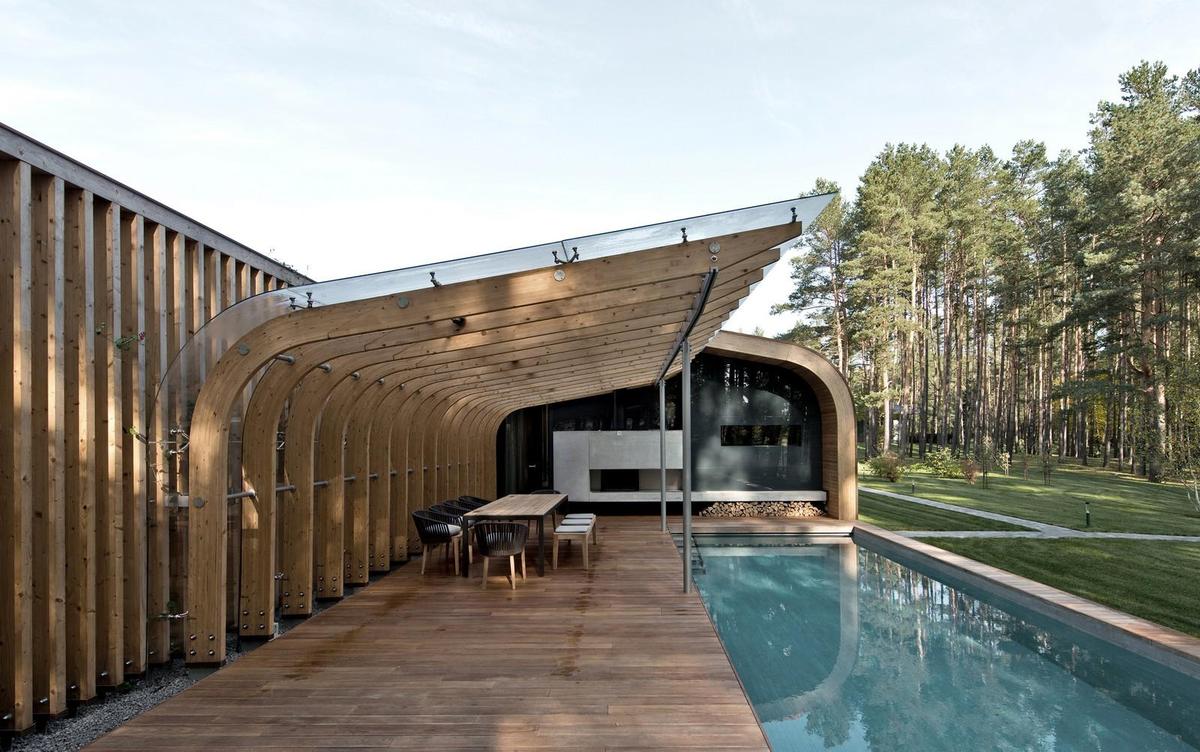
Down the hall and outside is the swimming pool, outdoor fireplace and al fresco area.
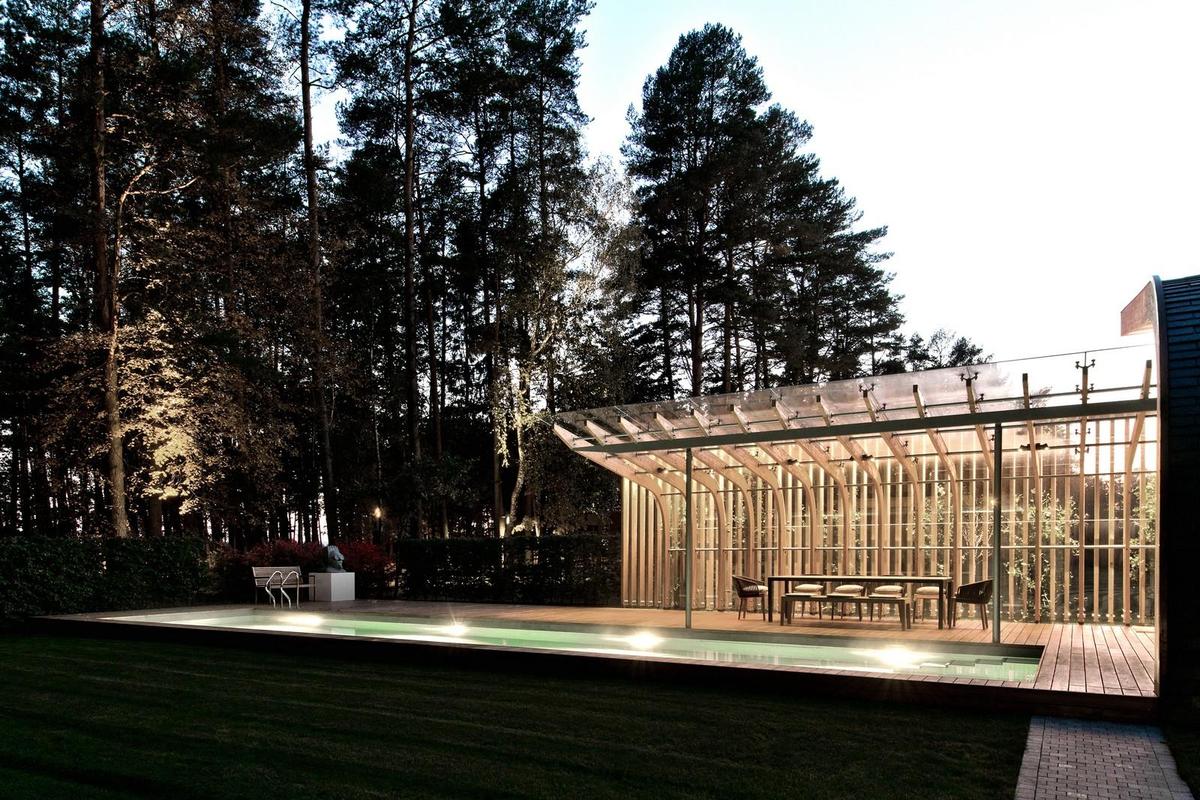
The shade pergola is roofed and backed in glass, providing additional shelter while still letting daylight to pass through – or on those evening swims, starlight.
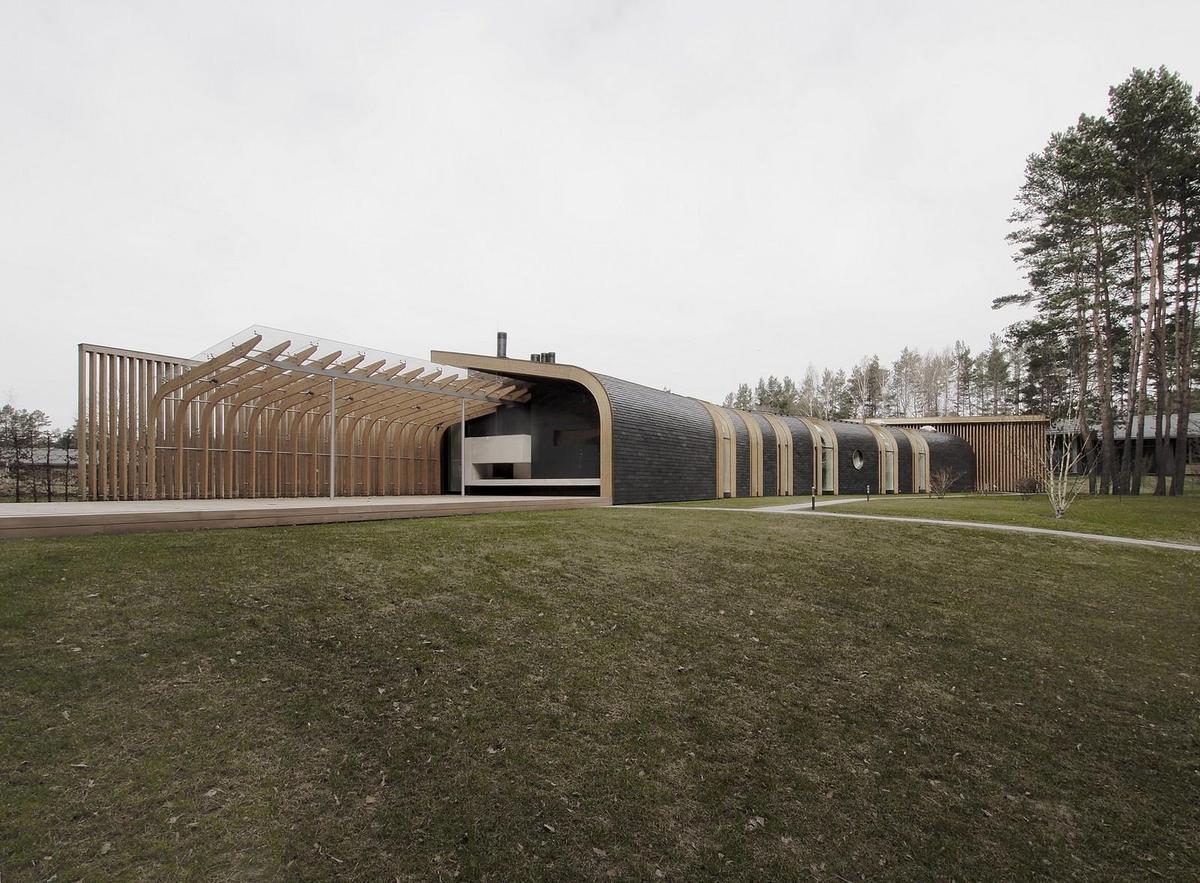
From a distance the pool is all but invisible thanks to the lands topography.
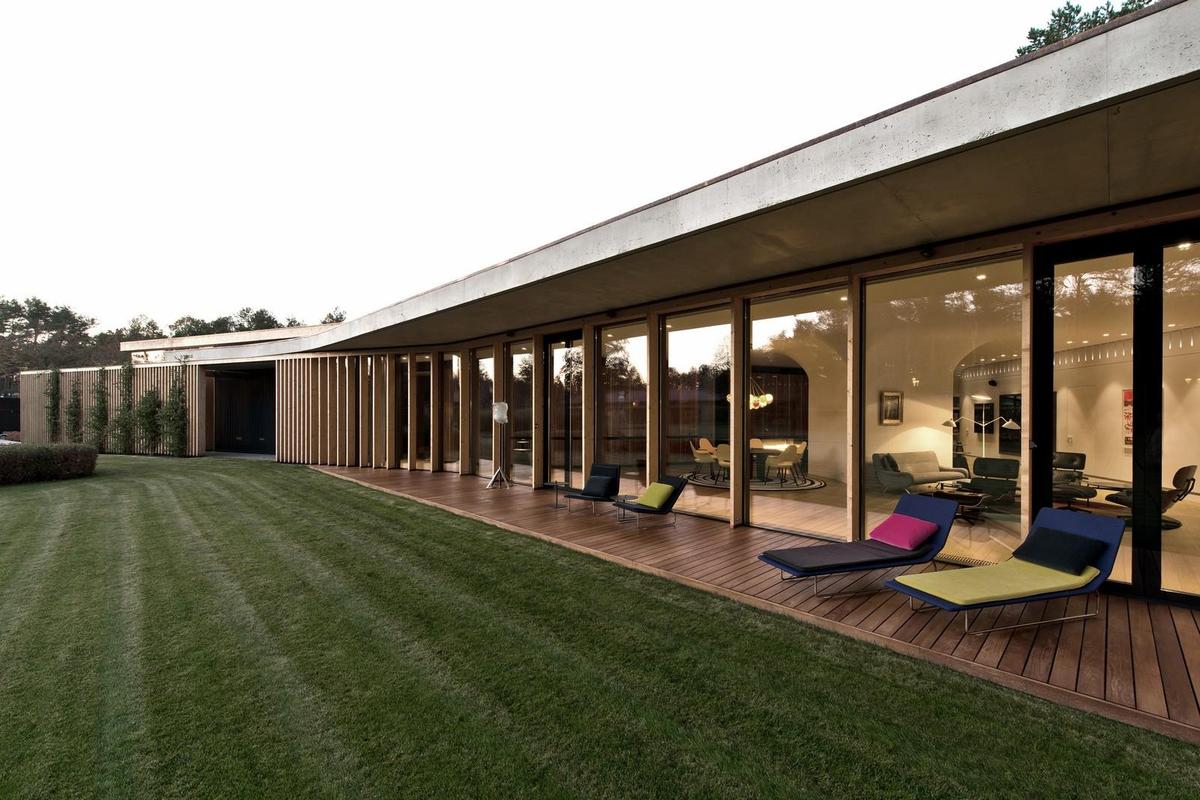
The walkway that runs the length of the social zone provides additional outdoor seating, easily accessed via a pair of glass doors off of the living room.
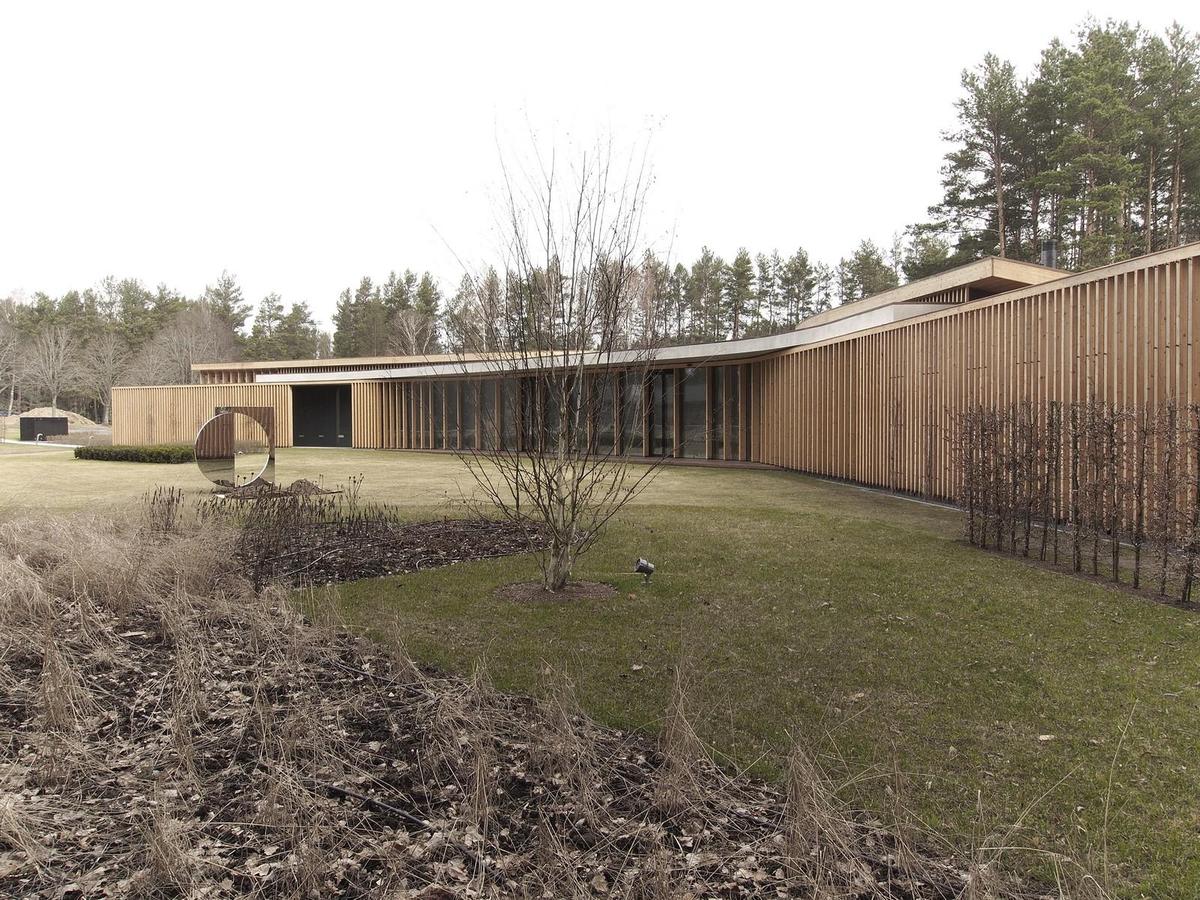
The walkway ends where the poolside privacy wall begins, both creating one continuous flowing shape to the back yard.
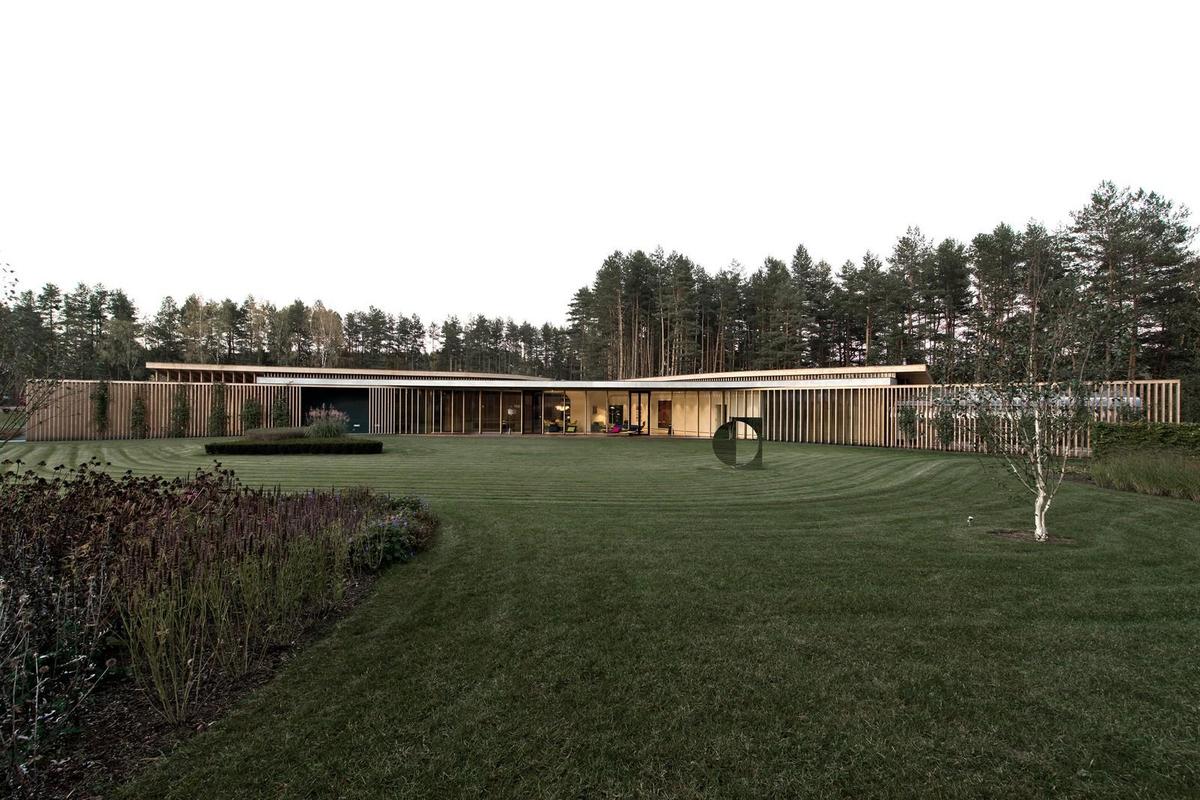
The backyard is large and features several different organic focal points as well as a strategically placed geometric sculpture.
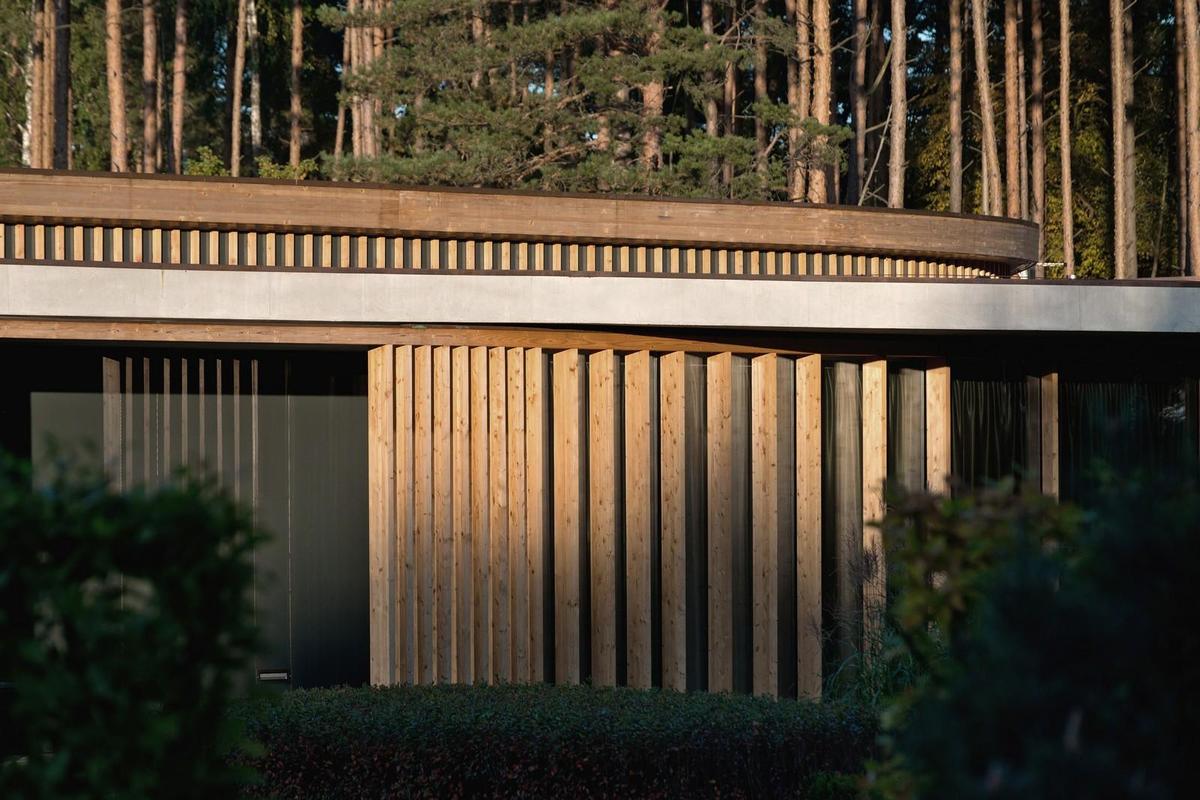
The geometric sculpture plays off of the geometry of the house itself.
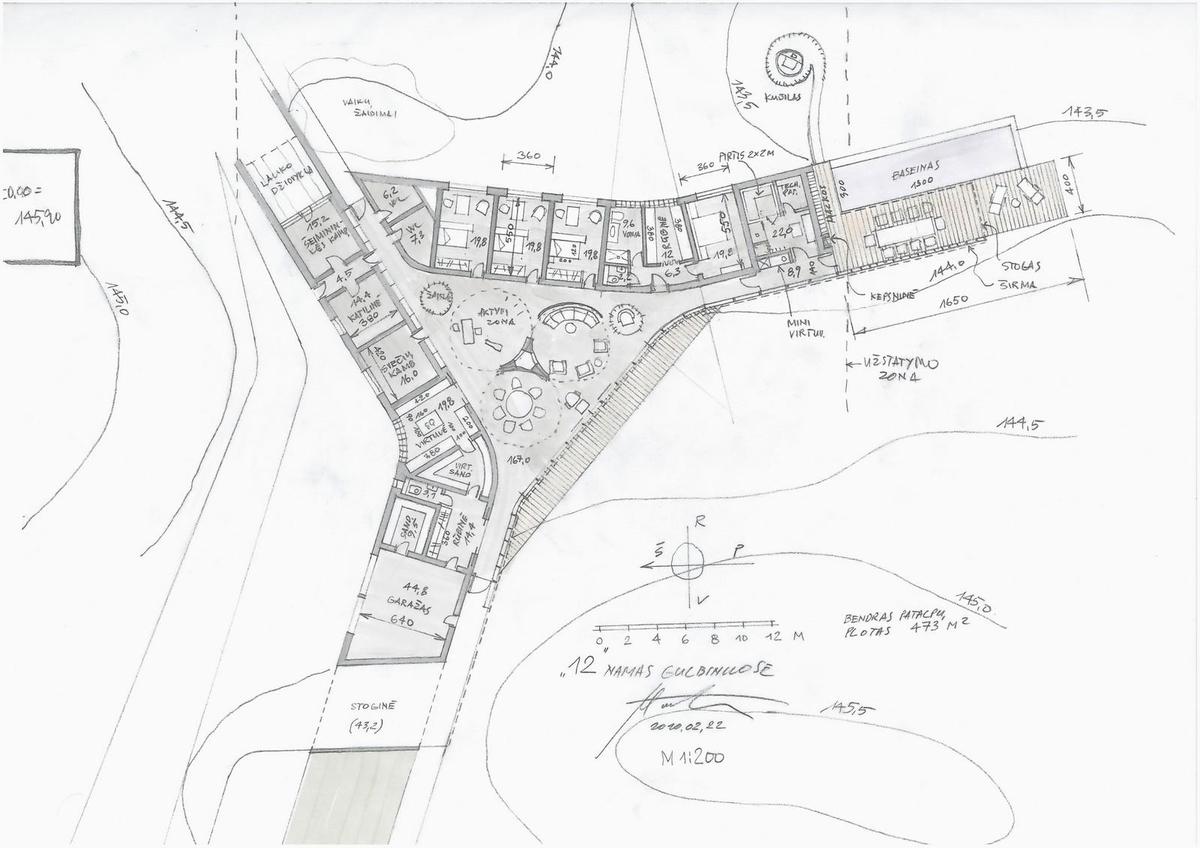
Audrius Ambrasas Architects
Photography by Leonas Garbacauskas and Audrius Ambrasas
